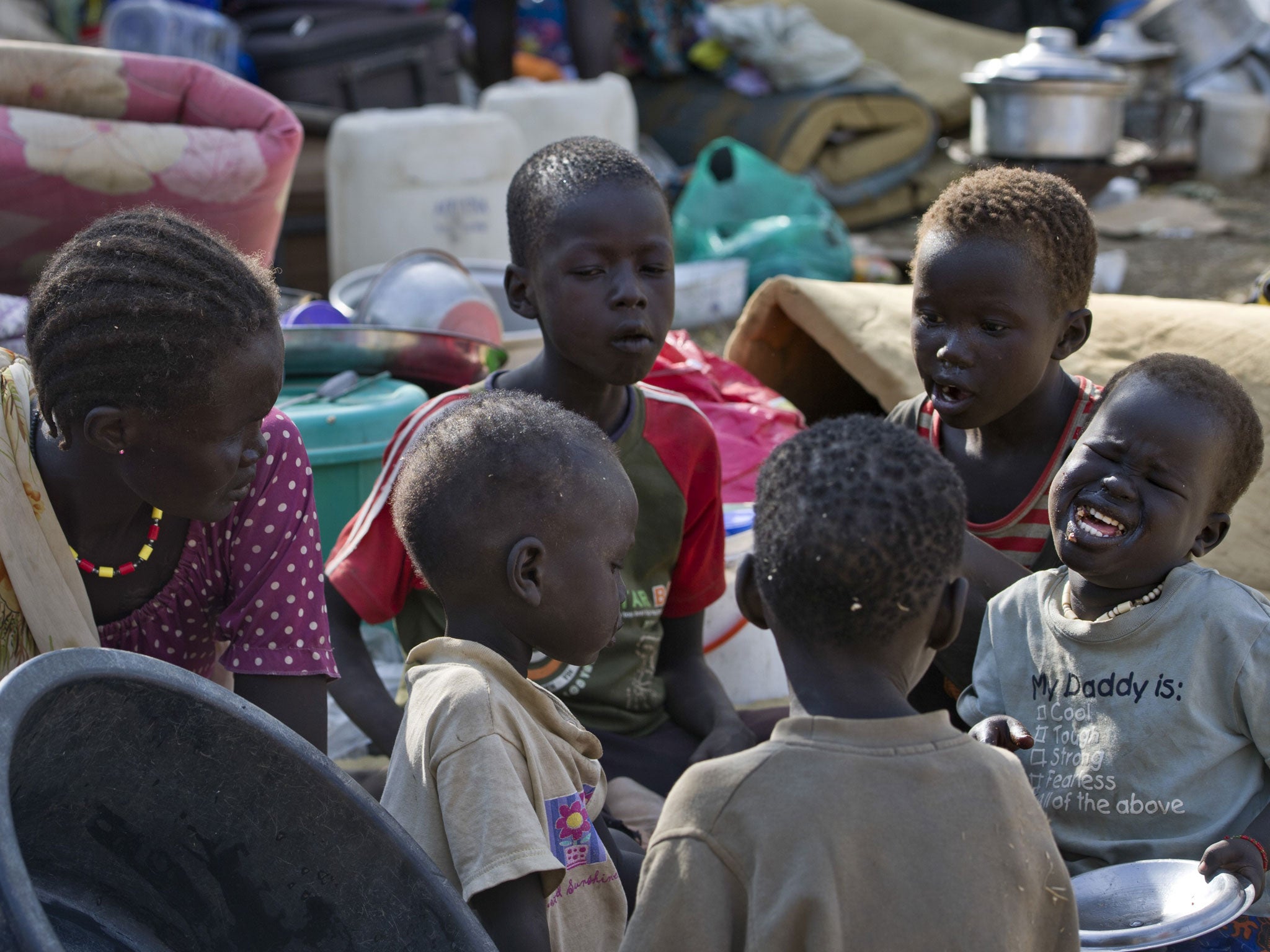Refugees flock to UN shelters as South Sudan violence spreads
Fighting, sparked by an attempted coup, has spread beyond the capital city despite a curfew and airport closure

As fighting continued to rage in several parts of South Sudan, the world’s youngest nation, thousands of fugitives from the violence were took shelter in United Nations premises, including 20,000 in Juba, the capital, and another 14,000 in Bor, capital of Jonglei state, considered the most unstable region in the country. Hundreds more have fled their homes in Bentiu, Unity State, where the oil wells of this petroleum-rich country are concentrated.
President Salva Kiir clamped a dusk-to-dawn curfew on the capital and closed the airport earlier in the week, but the continuing violence belied his claim that he had extinguished the claimed coup attempt and restored order.
Foreign nationals were fleeing for safety: the China National Petroleum Company, one of the main investors in South Sudan, was the latest body to announce that it was evacuating its workforce as violence continued, after similar announcements from the British and US Embassies, both of which have withdrawn non-essential staff. The UN seemed restricted to the role of offering a haven for terrified civilians, and appeared to have taken no effective measures to halt or mitigate the violence.
The ethnic animosity behind the violence grew more explicit as the fighting spread beyond the capital. In Jonglei state north of the capital, the most unstable region of the country, two UN peacekeepers from India were reported killed and one wounded when a mob from the Nuer tribe to which Vice-President Machar belongs overran their compound. In that assault a presidential spokesman claimed that dozens of Dinka, the tribe to which the president belongs, had been killed by Nuer tribals.
The fighting broke out in Juba on Sunday, and President Kiir, abandoning his customary black suit for military fatigues, went on television to declare that it had been sparked by an abortive coup attempt backed by the vice-president, who is a member of the Nuer tribe. But Mr Machar denied that account, claiming it was not a coup attempt but “a misunderstanding between presidential guards.” He added, “Someone wanted to frame me. I had to flee. They are hunting me down.” Tanks reportedly fired on Machar’s home compound in Juba, and his whereabouts are unknown.
President Kiir, leader of the Sudan People Liberation Movement which is in effect the only functioning political party, led South Sudan to independence in 2011, and the creation of the new state after decades of civil war with the more powerful north was greeted with optimism and euphoria. But despite his reassurances to the watchful outside world that he was committed to building an inclusive democracy, his rule has recently become both more dictatorial and more ethnically exclusive. Hannah Bryce, international security expert with Chatham House, said, “Government policies since independence have been careful to use the language of inclusivity [but] the reality is very different…Tensions have been further aggravated by the failure of the central government to provide even basic levels of governance, made worse by systemic corruption and patrimonialism. The extent of corruption…was demonstrated in 2012 when President Kir issued a somewhat plaintive call to his government officials to return stolen cash.”
The present crisis has been brewing since July, when Mr Kiir sacked his entire cabinet and closed many government ministries, ostensibly to make his government more efficient. Mr Machar responded by indicating that he would challenge Mr Kiir for the leadership of the SPLM, and several other former government ministers sided with him.
People familiar with the country point out that Mr Kiir and Mr Machar have fallen out badly in the past but always succeeded in burying the hatchet. But recent health problems caused Mr Kiir to travel to South Africa for treatment and seem to have left him more ruthless and dictatorial than in the past. The crisis is being followed anxiously in neighbouring Ethiopia, Kenya and Uganda, which dread yet more waves of Sudanese refugees.
Join our commenting forum
Join thought-provoking conversations, follow other Independent readers and see their replies
Comments
Bookmark popover
Removed from bookmarks